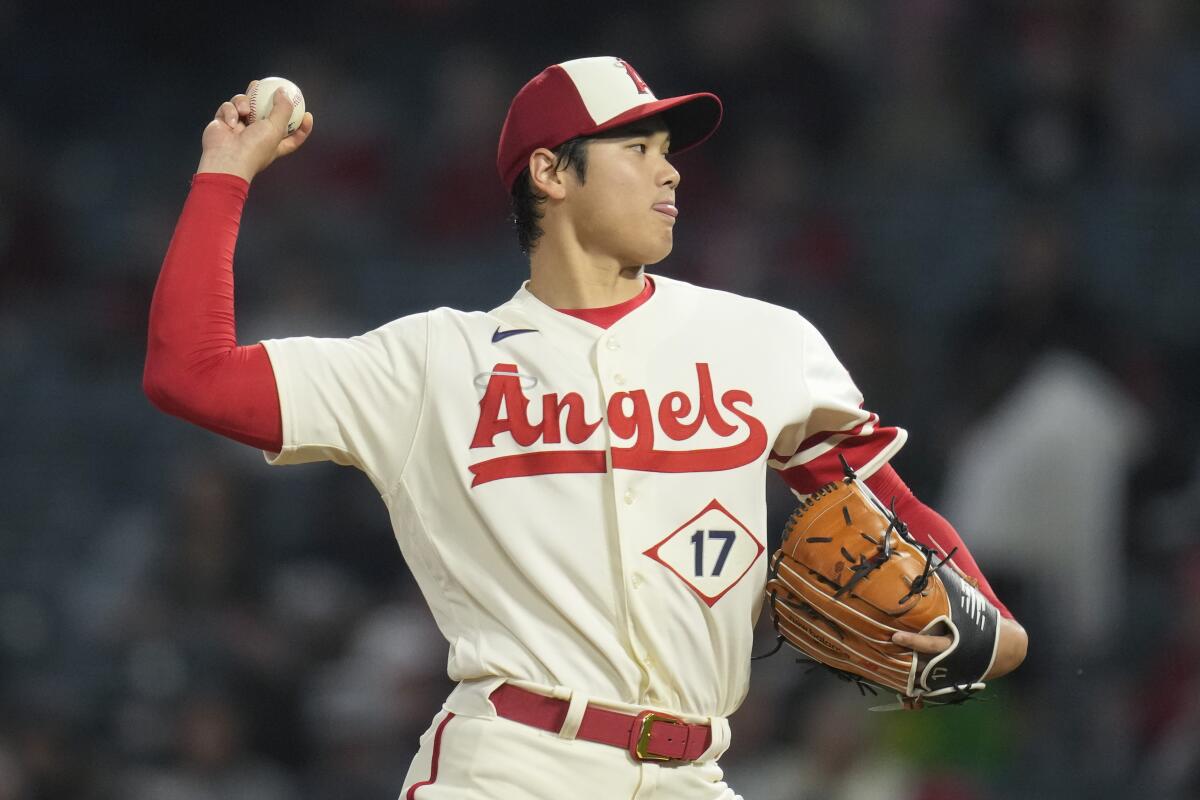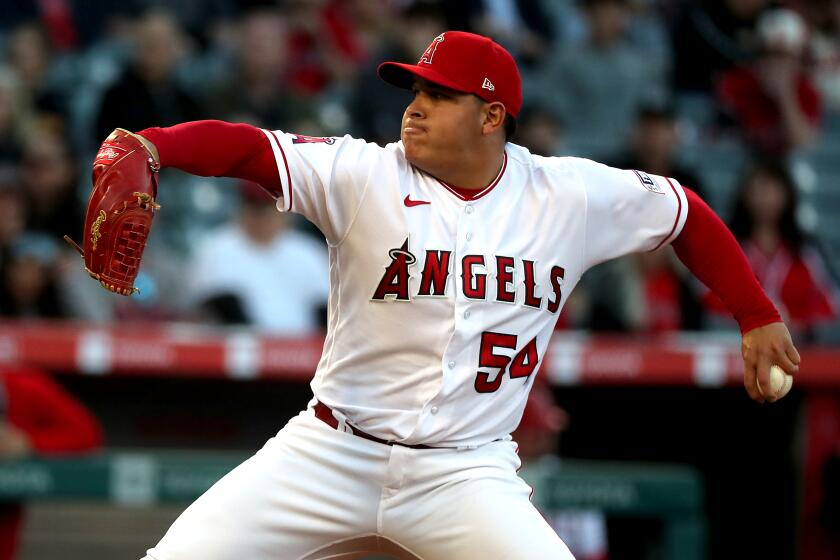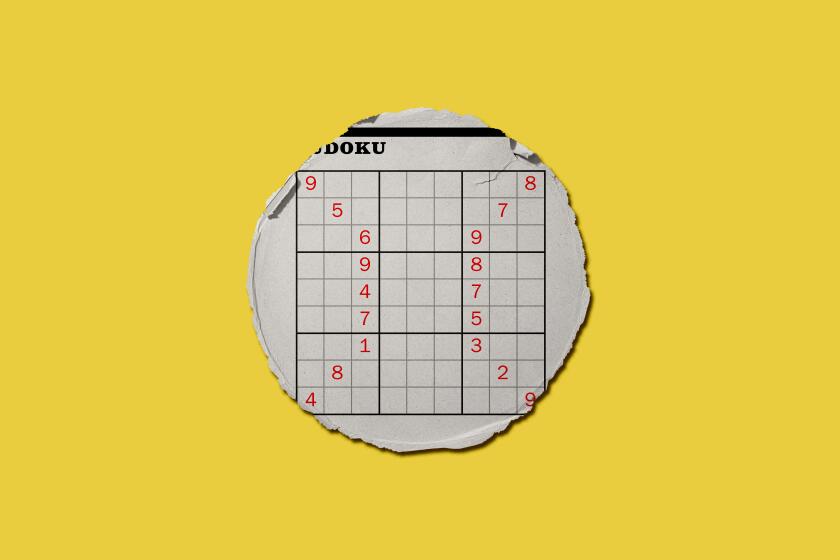Shohei Ohtani pitched seven innings of one-hit ball. Why he thinks he can be better

- Share via
Through Shohei Ohtani’s continued dominance on the mound, he’s still expecting more from himself. He is an ever-evolving pitcher. Of course he’s always trying to improve on quality starts. That’s what makes him an ace.
“I mean just look at the results on paper, it looks like it looks great,” he said through a Japanese interpreter Tuesday, “but I haven’t really had too many one, two, three innings as much as I would. Feel like those one, two, three innings will give the offense more momentum.”
For example, his start Tuesday against the Washington Nationals at Angels Stadium, where he collected his second win of the season in the Angels’ 2-0 victory over their National League opponent, began with him walking Alex Call. Ohtani walked five batters over seven innings and he threw a pitch that grazed a batter.
Walking the first batter of a game is no big deal for Ohtani — though he did say that walking as many as he has has been tiring. He’s walked the first batter in each of his three starts. The games were all still in his control, just like Tuesday.
José Suarez struggled last week and he ran into problems again Monday as the Angels fail to hold on to a three-run lead in a 6-4 loss to the Nationals.
“Right away, you’re worried about a number [of pitches] and all that and I say that but I’m really not worried about anything he does,” manager Phil Nevin said of the leadoff walks.
“Other than one inning last year, innings just don’t get away from him,” Nevin continued. “He makes adjustments on the fly and kind of figures out real quick what’s working for him that day and what’s not and applies it, and as you see took us through seven tonight and a big outing.”
His walks, which are slightly up compared with the same time last season, Ohtani considers one of his things to work on early this season.
“It’s kind of weird because I felt really good in the bullpen this time around,” Ohtani said of his pregame prep, “so I thought I wouldn’t give up as much, but I did.”
There were adjustments, that evolving aspect of Ohtani’s game, that both managers, Nevin and the Nationals’ Davey Martinez, were seeing that made Ohtani’s walks a minor blip in his game.

“When he started throwing those sliders for strikes consistently ... he got tough,” Martinez said after the game. “When he starts throwing around the zone and starts throwing those sliders and able to control his fastball it’s a tough at-bat. He bounced back and was able to get ahead of our hitters and make it tough for us.”
Added Nevin: “I saw a few fastballs that were lower in velocity and I looked up and I saw the numbers and I understood what he was doing. Just creating a little more movement on the ball and that’s just him doing things to make himself better and keep hitters off pace.”
To drive the point home, what will be remembered of Ohtani’s Tuesday start at the end of the season will not be the walks. It’s that he pitched seven innings of one-hit baseball. He was pulled from the game after 92 pitches because he threw 111 in his previous outing in Seattle.
The one hit that Ohtani gave up was a two-out double on a sharp groundball hit by CJ Abrams, which quickly made its way to the corner of the right-field grass. A runner, Keibert Ruiz, was able to move into scoring position on the play.
In a sport and league that essentially runs about nine months, Angels personnel like doing Sudoku and crossword puzzles as a way to start their day.
That was as far as Ruiz would get. Ohtani got the next batter to ground out.
In Seattle on April 5, his in-game adjustment involved his timing. He was issued a pitch-clock violation early in that game because he was pitching before the batter was actually ready.
He had a lengthy conversation with the umpires in between innings to understand what he was doing that violated the rule. Ohtani finished that game giving up one earned run on three hits, four walks, two batters hit and eight strikeouts.
He did not have the same issue Tuesday, though admitted he’s not 100% sure about the rule.
“Fundamentally, I didn’t change too much,” he explained. “It was more about when the batter’s not watching, at nine seconds, eight seconds, those gray areas. The umpire won’t always give it. I’m still a little unclear about that.”
And Ohtani capped his evening by setting a new Angels record: 10 consecutive pitching starts dating to last season in which he gave up two or fewer runs.
Hall of Famer Nolan Ryan had a nine-game streak between the 1972-73 seasons.
More to Read
Go beyond the scoreboard
Get the latest on L.A.'s teams in the daily Sports Report newsletter.
You may occasionally receive promotional content from the Los Angeles Times.









